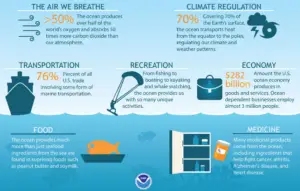Table of Contents
Credit rating agencies in India
- The Securities and Exchange Board of India (Credit Rating Agencies) Regulations, 1999 empower SEBI to regulate CRAs operating in India.
- All the credit agencies need to be registered with SEBI in order to operate in India.
- There are seven Credit Rating Agencies registered with SEBI, viz. CRISIL, ICRA, CARE, India Ratings and Research, SMERA, Infomerics and Brickworks.
Significance of Credit rating agencies (UPSC IAS)
- They provide retail and institutional investors with information that assists them in determining if debtor will be able to meet their obligations.
- They help investors, customers etc. to get an overall idea of the strength and stability of an organization and enable them to make informed decisions.
- These agencies also help build trust between the investors and the governments by quantifying the level of risk associated with investing in a particular country. For example-Sovereign credit ratings are given to the national governments which highlight a country’s economic and political environment.
- CRAs help strengthening of secondary market by increasing borrower pool.
- Credit ratings ensure a discipline amongst corporate borrowers due to because of this desire to have a good image.
Issues or Problems related with Credit Rating Agencies (UPSC IAS)
- Conflict of interest: The CRA Regulations in India currently recognise only the issuer-pays model, under which, the rating agencies charge issuers of bond and debt instruments a fee for providing a ratings opinion. Thus, this model has an inbuilt conflict of interest.
- Another example of conflict of interest is non-rating services such as risk consulting, funds research and advisory services given to issuers for which ratings have been provided.
- Rating shopping: It is the practice of an issuer choosing the rating agency that will either assign the highest rating or that has the most lax criteria for achieving a desired rating. Hence, the system does not permit publishing a rating without the issuer’s consent.
- Less competition: Credit-rating market in India is oligopolistic, with high barriers to entry. Lack of competition in the market enables CRAs to have longer, well- established relationships with the issuers which can hamper their independence.
- Poor Rating Quality: Often ratings are provided on limited information. For e.g. If the issuer decides not to answer some determinant questions, the rating may be principally based on public information. Many rating agencies don’t have enough manpower which often leads to poor quality.
- Independence of the ratings committee: Over the years, the membership of the ratings committee has shifted from external experts to employees of the ratings agency which has raised concerns about their independence.
Suggestions or Solutions for addressing these challenges (UPSC IAS)
- Removal of conflict of Interest: Moving back to the earlier “subscriber pays” model in which investors pay for the ratings can be a possible approach.
- More Players: Rules should be made easier for new players to enter the credit rating space and compete against them.
- Improve Quality of Ratings:
- SEBI must also assess the predictive ability of the current rating models followed by the agencies. There is a need to invest in high-tech predictive modelling techniques.
- Increased remuneration for manpower to attract the best talent must be ensured.
- Cursory disclosure of all ratings: CRAs can be asked to provide briefly in their press release to the ratings given by other CRAs to the same borrower. This can help in discouraging “rating shopping”.
- Legal protection for CRAs: There are instances of Indian CRAs being sued by the company it rates, in a bid to prevent the rating downgrade. The regulator should consider framing laws that allow CARs to express their rating opinion without fear of being sued.
- Awareness among Investors: Investors should be made aware about the rating process and be asked to conduct a review by themselves too and stop relying solely on the ratings.
- Rotation of rating agencies: SEBI can also explore the possibility of a mandatory rotation of rating agencies by the debt issuers (like corporations are required to change their auditors periodically under the Companies Act, 2013).
keywords: Problems & Solutions with credit rating agencies in india, UPSC IAS PCS.



